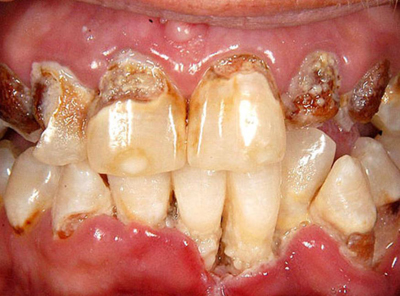My dentist told me to back off of booze. I have some perio issues with loose teeth and she said that my drinking habits can be a contributing factor. Yes she told, not asked me to cut back on booze. I was almost going to be insulted but I figured if she is right, she is saving me money on dentures or dental implants. Then the thought occurred to me that she might have just been getting to try me to stop drinking so much because a few times she asked me if she smelled alcohol on my breath. Does alcohol have anything to do with gum disease? Thanks. Ron
Ron – Your dentist is looking out for your best interests. A recent (September 2015) article in the Journal of Periodontology Online, Alcohol Consumption and Periodontitis: Quantification of Periodontal Pathogens and Cytokines, reports the findings in a study that included non-drinkers, occasional drinkers, and regular drinkers.
Among regular drinkers, there were more instances of sensitive gums that bleed easily, and the need for periodontal (gum) disease care. Another symptom of periodontal disease is that gums start to pull away from the teeth, forming pockets between the gums and teeth. Even regular drinkers without periodontal disease exhibited deeper pockets than occasional drinkers and non-drinkers.
Why the difference between regular drinkers and occasional or non-drinkers? Alcohol consumption dries the mouth. A dry mouth contributes to plaque buildup, which inflames the gum tissue. Sensitive, inflamed gums bleed, and if left untreated, can separate from the teeth and in time result in full-blown gum disease.
If gums don’t properly adhere to your teeth, the teeth lack support and can loosen. Left untreated, loose teeth will eventually fall out, and yes, some form of tooth replacement, perhaps dental implants, will be recommended.
If you are a regular alcohol drinker, your dentist’s recommendation is correct. Consuming less alcohol can improve the situation.
It’s important for all patients to speak openly about their drinking habits with their dentist. This will help your dentist correctly advise you and assist you with preventive dental care and help you avoid the need for tooth replacement.
This post is sponsored by Lowell dentist Dr. Michael Szarek.

